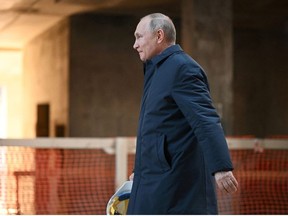Sobering Reality
"Atmospheric soot loadings from nuclear weapon detonation would cause disruptions to the Earth’s climate, limiting terrestrial and aquatic food production. Here, we use climate, crop and fishery models to estimate the impacts arising from six scenarios of stratospheric soot injection, predicting the total food calories available in each nation post-war after stored food is consumed. In quantifying impacts away from target areas, we demonstrate that soot injections larger than 5 Tg would lead to mass food shortages, and livestock and aquatic food production would be unable to compensate for reduced crop output, in almost all countries. Adaptation measures such as food waste reduction would have limited impact on increasing available calories. We estimate more than 2 billion people could die from nuclear war between India and Pakistan, and more than 5 billion could die from a war between the United States and Russia—underlining the importance of global cooperation in preventing nuclear war."Rutgers University study -- Nature Food"The psychological impact can be greater than the actual damage.""These [mushroom farming, indoor farming and insect protein production or microalgae foods as alternatives] don’t require as much room.""They can be grown in your kitchen, in an underground space, and rely less on an environment exposed to nuclear war."William Chen, food science professor, Nanyang Technological University, Singapore; director government-affiliated food safety program
According to a Rutgers University-led study published in the journal Nature Food, two-thirds of the world could starve to death should a nuclear war break out between Russia and the United States. "Catastrophic" disruptions would result from nuclear conflict, leading to massive shortages of food. Sun-blocking soot and ash from the explosion would wilt crops globally, wrote the researchers.
In the event of even a smaller scale nuclear war between Pakistan and India, food supplies would be devastated. Global food production would be cut by seven percent in a five-year period, killing up to 2.5 billion people. In these cases food insecurity would represent a deadlier threat than the nuclear blasts, predicts the study.
"The data tell us one thing: We must prevent a nuclear war from ever happening", stated Alan Robock, climate scientist and coauthor of the report. Wind pattern alterations in the event of such a catastrophe could spread smoke and fire from nuclear attacks, clouding skies above major food exporters like the United States and China. The absence of sunlight would collapse harvests which could result in a 90 percent drop in animal, fishing and crop yields worldwide within four years of a conflict between major nuclear powers.
Following Russia's invasion of Ukraine, fears of nuclear conflict have been renewed. Increased Chinese military drills near Taiwan have done their part to increase apprehension of nuclear conflict. Russian President Vladimir Putin stated his nuclear forces to be "combat ready", raising fears of possible nuclear conflict with the West, though Russian authorities later attempted to 'correct' the perception that a warning was being extended by Mr. Putin.
Massive military drills have been mounted around Taiwan by China, following recent U.S. lawmakers' trips to the island state, challenged by Beijing as its recoverable territory. Existing threats to food security would be compounded exponentially by nuclear war. Climate change, the war in Ukraine and the coronavirus pandemic have done their part in severely disrupting global food production.
According to the World Food Program, 345 million people worldwide face food insecurity. The result of which has been that countries like India and Malaysia have taken steps to limit exports of wheat and chicken in the fear that global conflict -- irrespective of the use of nuclear weapons -- and food insecurity that would result could influence countries to limit exports or to hoard food supplies.
 |
Labels: Agricultural Interruption, Food Insecurity, Food Production, Global Starvation, Nuclear War, Rutgers University Study

<< Home